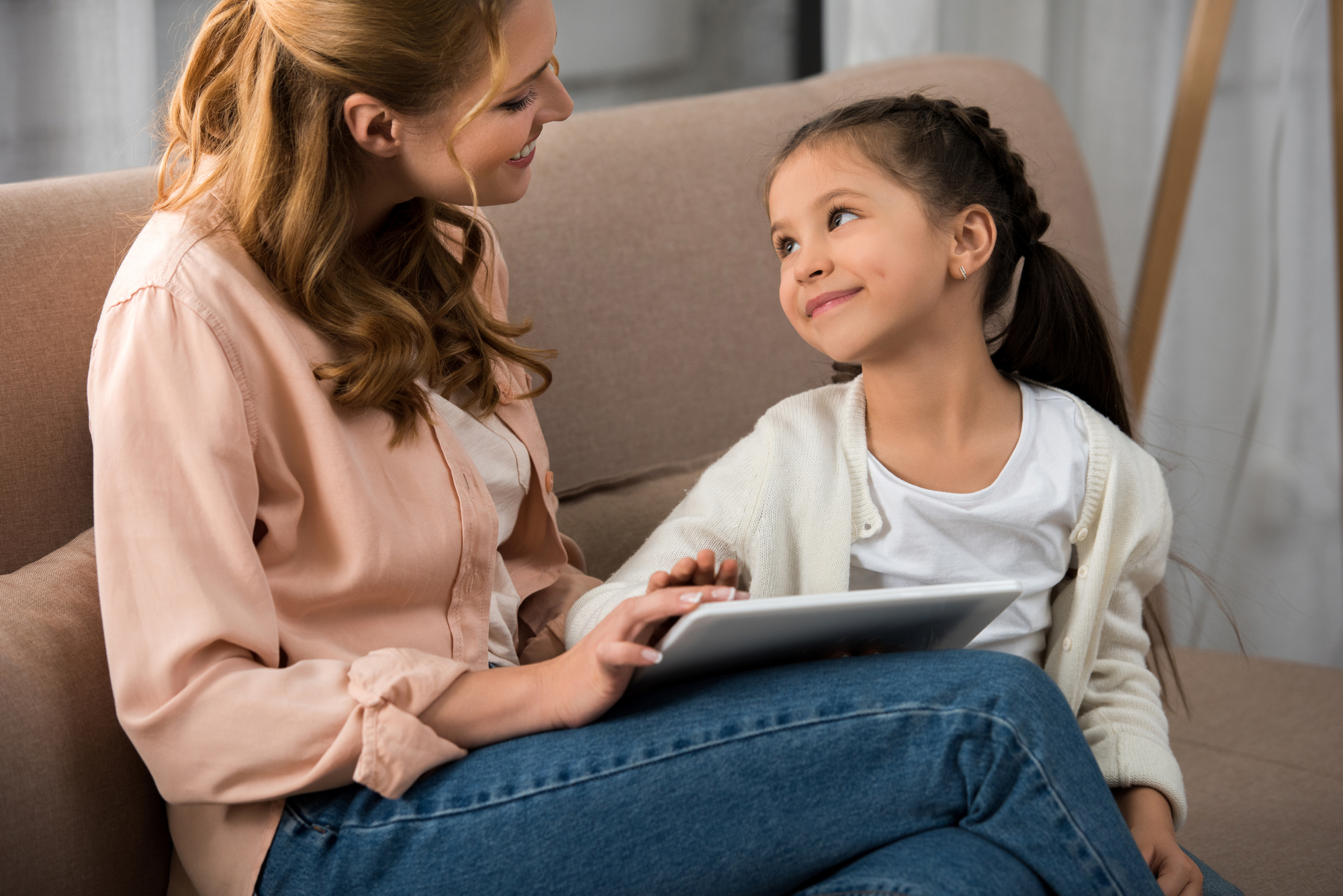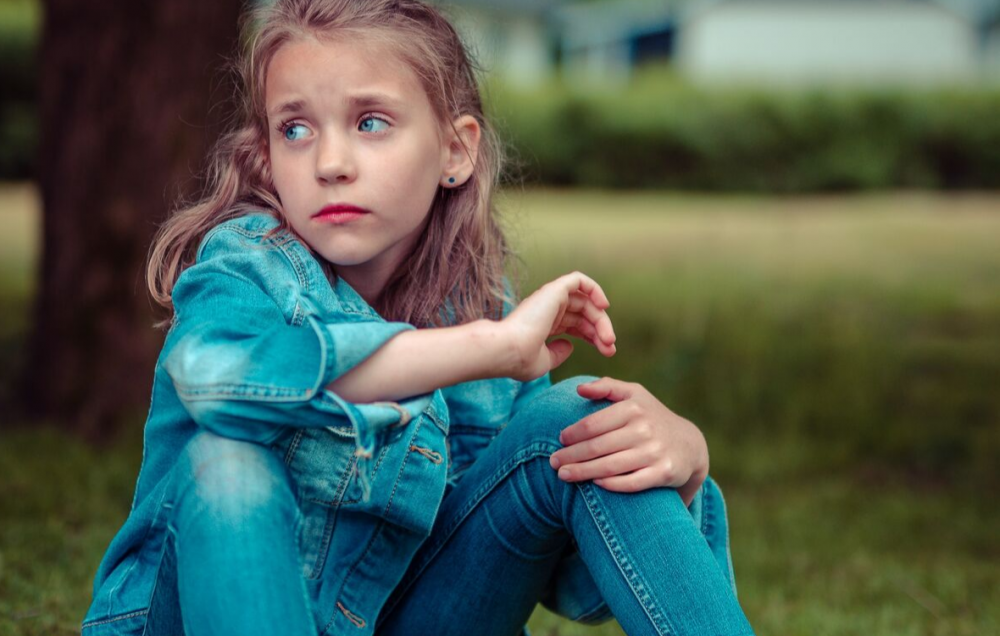by Dr Julie Hollitt
Being curious about the behaviour of children is to be curious about what they need and about what it is that they are ready to learn. The behaviour of children can be far more enlightening for parents and carers working at understanding their child’s needs than the words the child has to say about their needs or behaviour.
Let’s take the example of the emotional or mood state of a child engaged in solo play which is, in normal circumstances, enjoyable for them. Children at play with favourite toys or activities can be satisfied, settled, engrossed, entertained, and generally happy. If, as time passes during this play, your child’s mood changes and behaviour becomes erratic, complaining, irritable or unsettled, it is worth wondering about what changed.
Provided children are healthy, and not coming down with something, then the simplest explanation for behaviour becoming erratic, complaining, irritable or unsettled is that your child’s body and brain chemistry has shifted during the space of time in which they were originally settled and happy. In other words, the child’s biochemical state has changed and this is communicated by behavioural changes. There is no question here of ‘bad’ behaviour – which is what behaviour and uncomfortable emotional states can easily be labelled. To be clear, I am referring here to shifts in biochemical states in human beings expressed as behaviour, thus communicating a need.
In practical terms then, when a shift in your child from a happy, settled state to an irritable, complaining or irascible state occurs, it is more than likely that your child has become hungry, angry, lonely or tired.
The easiest behaviours to read and respond to are hunger (for nutrition and hydration) and tiredness (requiring sleep or quietness). These are needs that require regular attention in growing bodies and minds. As parents, having an idea of when the last time your child ate and had some fluids is generally easily worked out, especially when your child is at home with you. Similarly with tiredness. Depending on the age and stage of development of your child, and the routines around sleep and rest, it is easy enough to determine whether they are overdue for some ‘zeds’ or for some lower stimuli, like a relaxing bath or shower for instance.
For helpful advice and tips around nutrition and hydration that are age-appropriate, there are some useful resources here. Nutrition and hydration are just as much about what to eat and drink as about when to eat and drink, and in what manner (i.e. slowly rather than rushed, socially rather than in isolation, and so on).
For helpful guidelines for sleep that is age-appropriate, there are also some useful resources here and here. Sleep and rest are just as much about quality as quantity.
If during the course of play that your child is enjoying, they appear to become frustrated/angry or lonely, these are biochemical and nervous system state changes. The contributing reasons to these behaviours may simply be hunger or tiredness, however, there may be other reasons worth being curious about.
Children become angry when discovering that some object, toy or activity is not going the way they think it could or should. A way of dealing with anger may not yet be a skill that your child has been able to develop to the extent that they need for their age and stage of development. Or, alternatively, the level of motor skill or tactile processing that the object, toy or activity requires may not yet be attained. We all get frustrated when we are unable to meet the objectives we are expecting we can. Children are no different. For parents/carers, a child’s anger is a very reliable indicator of an area in which they need support and in which they need guidance and modelling from a more knowledgeable “other”, such as the parent/carer. Like learning a new motor skill, learning to manage our frustrations takes some time. Managing our frustrations, however, is a lifelong task best-done step by step and with a developmental approach.
Children can also become lonely when playing with some object, toy or activity and make it clear that they might like some others to participate with them. The feeling of loneliness, and some of the behaviours we use to connect with others when this feeling arises, are also areas of lifelong learning. The early ways in which we work with the feeling of loneliness form the foundation for the social skills of adaptability we bring to the feeling of loneliness as an adult. This is crucial in forming healthy relationships that are nurturing for ourselves and others and contribute to a rich social fabric of human relationships in our communities. Again, behaviours emerging from a feeling of loneliness in children are behaviours that require responses from parents/carers that are developmental in nature (e.g. a cuddle in the early childhood years, parent modelling of how to invite someone to join in your play or how to share when you play with others, teaching curiosity about what others enjoy playing with you etc.).
For helpful advice and tips regarding children learning about their emotions and gaining age-appropriate understandings and skills in living with their emotions, have a look here and here.
Children’s behaviour informs us of some of their basic needs and developing skills. My child’s behaviour can be a much better indicator of their needs and developing skills than the words that they might utter when hungry, tired, angry or lonely. The trick as a parent/carer is not to talk too much in response to my child’s basic needs or important emotional learning while demonstrating an understanding of what those needs and developing skills are. Emotional presence and attachment make the world go round, and these start with our children. Getting needs met and learning new skills occurs in relationships with others, hopefully with more knowledgeable others, like parents and carers.
Tough times – like those we are in at present – require us to play with our children more than ever because in the play is the relating, and in the relating is the learning (from a very early age) about our needs and our emotions. In the play is the practice of learning to care well for ourselves and for others.

Dr Julie Hollitt is an educator with over 30 years of experience across early childhood, primary, secondary and tertiary settings. Her work has spanned diverse contexts and populations, from Kensington to Mt. Druitt (Greater Sydney, NSW), Port Moresby to Wewak (PNG), and Wilcannia to Mudgee (Greater NSW). She has worked as a teacher, consultant, academic, author, and clinician.
She is currently a practising psychologist working with school leaders, teaching staff, children and young adults, and parents/carers. She is very active in the professional learning and clinical supervision space, particularly with professionals in regional and remote settings.
Julie’s PhD is based in psychology, education and professional practices, especially in relation to ‘outside-of-the-box’ situations and settings including a wide range of people and experiences.
She’s a person who loves nature, her family and pets, a good book, a good laugh and pretending to paint and play the guitar.
For further information, see: https://www.continuumpsychology.org/







